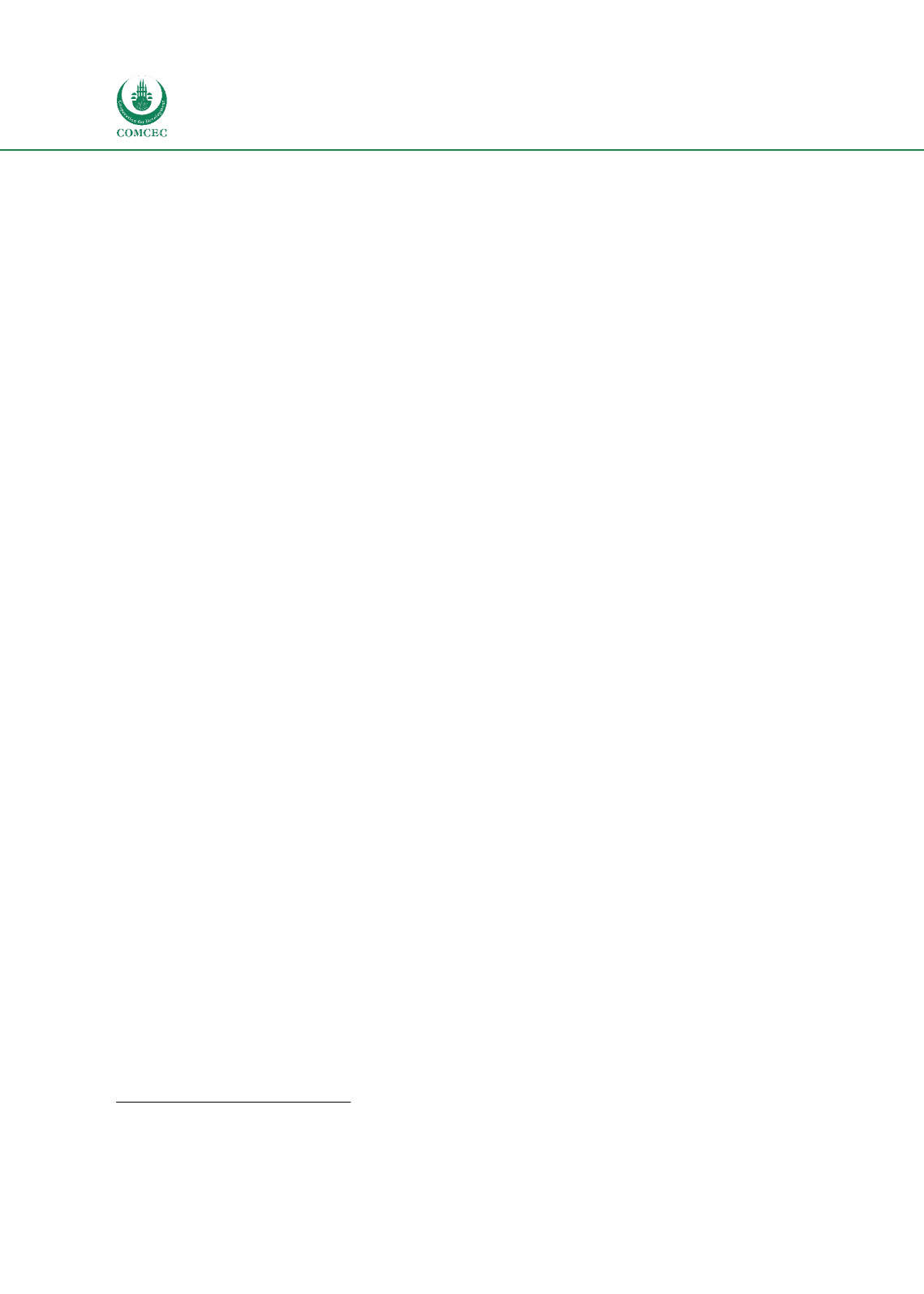

Improving Agricultural Market Performance
:
Creation and Development of Market Institutions
158
private-public partnerships is an efficient way to engage…available resources and
address…weaknesses in [public] support…programs and services.
“
The pace of land reform should be closely linked to the development of the enabling
environment for the beneficiaries of land reform; otherwise land redistribution by
itself cannot deliver the expected outcomes, such as improving the welfare of the black
rural population, increasing food security in rural areas and developing a viable
commercial sector.”
493
In terms of market intervention, the Government of South Africa currently does not subsidize
agricultural exports and only levies variable duties on a certain number of agricultural
commodities (e.g. corn flour, preserved tomatoes, cherries, and some types of tobacco).
494
Tariff quotas restrict the import of animal products, vegetables, cereals, fruits, coffee, tea, oil
seeds, sugar, food preparations, tobacco, cotton, and potatoes. Export levies are applied to a
number of agricultural commodities, particularly fruits, vegetables, wine, and meat. These
levies are collected to fund various agricultural organizations. For instance, the Wines of South
Africa (WOSA), an association representing local wine exporters, is funded by a levy per litre
collected on all wines exported. The exact export levy rates, which do not exceed 5% of the
actual market price, are published in the Government Gazette, while the guideline prices are
established taking into account the actual average market prices at the first point of sale for all
products to which the expert levies are applied.
The Government’s market intervention is restricted to development aid, supporting
agricultural research, provision of veterinary and SPS-related services, quality control, and
resource conservation and management.
5.5.2 Agricultural & Food Market Institutions
South Africa has a broad panoply of both public and private institutions that provide financial
support, technical assistance, investment transaction support, and information to the
agriculture and agribusiness sectors. They include:
National public sector bodies;
Private and non-profit institutions and companies;
Municipal Governments; and
Educational institutions.
They attempt to realize these agricultural ambitions of the Government of South Africa with
regards to intervening, regulating, and enabling various market channels of the country’s
agricultural and food sector. The full institutional framework of South Africa agricultural
market system is set and governed by a number of Government entities and non-Government
entities. This section only focuses on selected agricultural market institutions which match the
classification accentuated in the Conceptual Framework in Chapter 1
( Table 9 ).
The Government of South Africa operates a number of state-owned economic enterprises in
various sectors, including agriculture.
495
Eight of the most important state-owned economic
493
OECD (2016),
Agricultural Policy Monitoring and Evaluation 2016
, Paris: OECD Publishing.
494
WTO (2015),
Trade Policy Review: Southern Africa Customs Union
, Geneva: World Trade Organization.
495
WTO (2015),
Trade Policy Review: Southern Africa Customs Union
, Geneva: World Trade Organization.


















